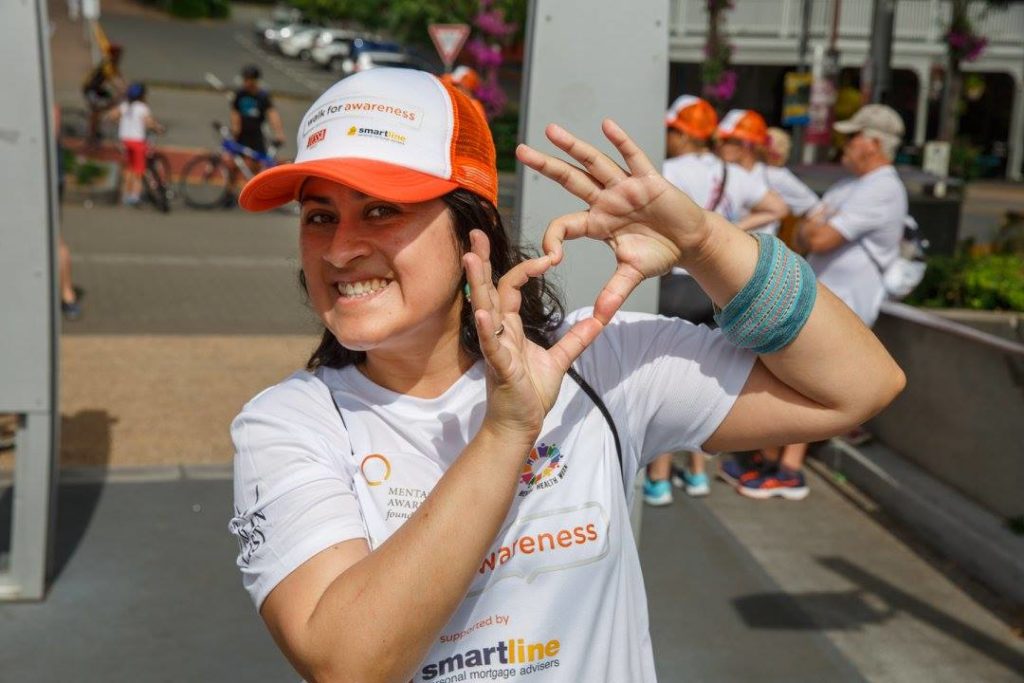This article was supplied by Carolina Gonzalez, a Brisbane International Student Ambassador. Carolina moved to Brisbane from Chile in 2011 to study a Master of Mental Health and loved it so much she chose to do her PhD in Psychology here.
Studying overseas is a great opportunity for personal and professional development; however, it can also lead to some significant personal challenges. I believe that all of us deserve to enjoy a complete life with strong mental health. We talk so much about being mentally ill that we forget about how to stay mentally healthy.
The adventure so far
I arrived in Brisbane back in 2011. I left Chile with only two suitcases. I left behind family and friends. When I arrived at the airport, I thought that my English was decent, however, the Australian accent suddenly reminded me why I was taking an English course before my postgraduate studies. Within my classroom, we had international students from different countries and backgrounds, all willing to meet new people and to learn from each other.
However, being by yourself in another country is challenging – you have moments of excitement and support, whereas others are difficult. It’s challenging to balance studies and work with your personal wellbeing. I was fortunate to form a network of friends around me, and today I look back and happily remember that time, but this may not always be the case for everyone.

Mental Health of International Students in Australia
A number of studies have shown that international students are at risk of psychological problems. It makes sense: different culture, different country, and different expectations can create significant challenges. A survey of international students in an Australian university conducted in 2008 found that international students showed higher levels of symptoms related to depression, anxiety, and stress than Australian students.
These are very serious issues, and below are some tips to help deal with them.
1. Practice your English
If English is not your first language, you need to overcome this communication barrier. Fortunately, Australia is a friendly country where people support your English and encourage you to talk.
Remind yourself that to learn a second language is challenging in itself and it’s amazing that you’re doing it. You’re brave enough to accept the challenge!
2. Form a social support network
Studying in a new country can be very isolating. All of us face different challenges, but we have a common factor: Australia is our second home. Back home, you grew up around the same people, but here you have the opportunity to meet new people and learn from them.
There are social media groups of international students in your city and sometimes from your own cultural background/country. Contact them! Be part of them! Contact the staff and counselling and support services from your institution and connect with groups in the community. Depending on what you prefer, you can engage in sport, religion, politics, culture, and so on.
3. Have realistic expectations
Your studies in a foreign county are always going to be very difficult, whether English is your first language or not. It is important to work towards clear academic goals but remember to pace yourself. Instead of looking for the end, enjoy the process.
If you set small and achievable goals you will enjoy the process more, and suddenly you will see how your efforts are resulting in better academic performance. Having said that, academic performance isn’t the only endpoint. The richness of studying overseas is more than marks – you need to allow yourself a balance between academic/personal life.
4. Be aware of our cultural differences
Back home, everything seems easy because it is familiar. While Brisbane is a diverse and multicultural city, sometimes you only discover the cultural differences the hard way. You learn that even how to say ‘Hi’ is different among cultures.
Do you shake hands, or hug and give three kisses on the cheek? What you see as ‘normal’ can be perceived as rude for someone else. The key is to talk about it. If there is something that is rude or inappropriate for you, let the other person know. If there are customs that are important to you, share that information with classmates, housemates, teachers, and professors. If they know, they will be more aware, and they can learn from you as well.
5. Talk about it
This is the most important: let’s talk about how we feel and how we are doing. Broadly speaking, Australia has a very open culture and you are encouraged to talk about your feelings. You’ll be amazed by how many people care about you and are happy to listen to you and support you.
Mental health is not only about you; it’s about us. When you are dealing with mental health issues all by yourself, all of us are failing to provide you with the support you need. Let’s share it, let’s talk about it. Almost every international student will experience varying degrees of stress or mental health worries, but when we talk about it and we support each other, the big personal burden gets shared and less heavy. Remember that there is always someone willing to help.
Where to go if you feel you need assistance
Your institution and community
Your education institution has staff and resources that are dedicated to assisting with any mental health conditions. You can talk to a teacher, counsellor or welfare officer or any member of staff to be referred to someone who can assist you. If you are not happy to go to your institution, you can approach Beyond Blue or Lifeline.
The World Federation for Mental Health (WFMH)
The WFMH is an international organisation aiming to prevent mental and emotional disorders, advocate for proper treatment and care of those facing such disorders, and promote mental health. Its goal is to create a world where mental health is a priority for all people. WFMH commemorates World Mental Health Day each year to promote mental health and create awareness about the issues associated with mental illness. This year’s theme is Mental Health in the Workplace, and there are many resources available on its website.
This article was originally published by Study Brisbane on their blog. (Spanish version here)





